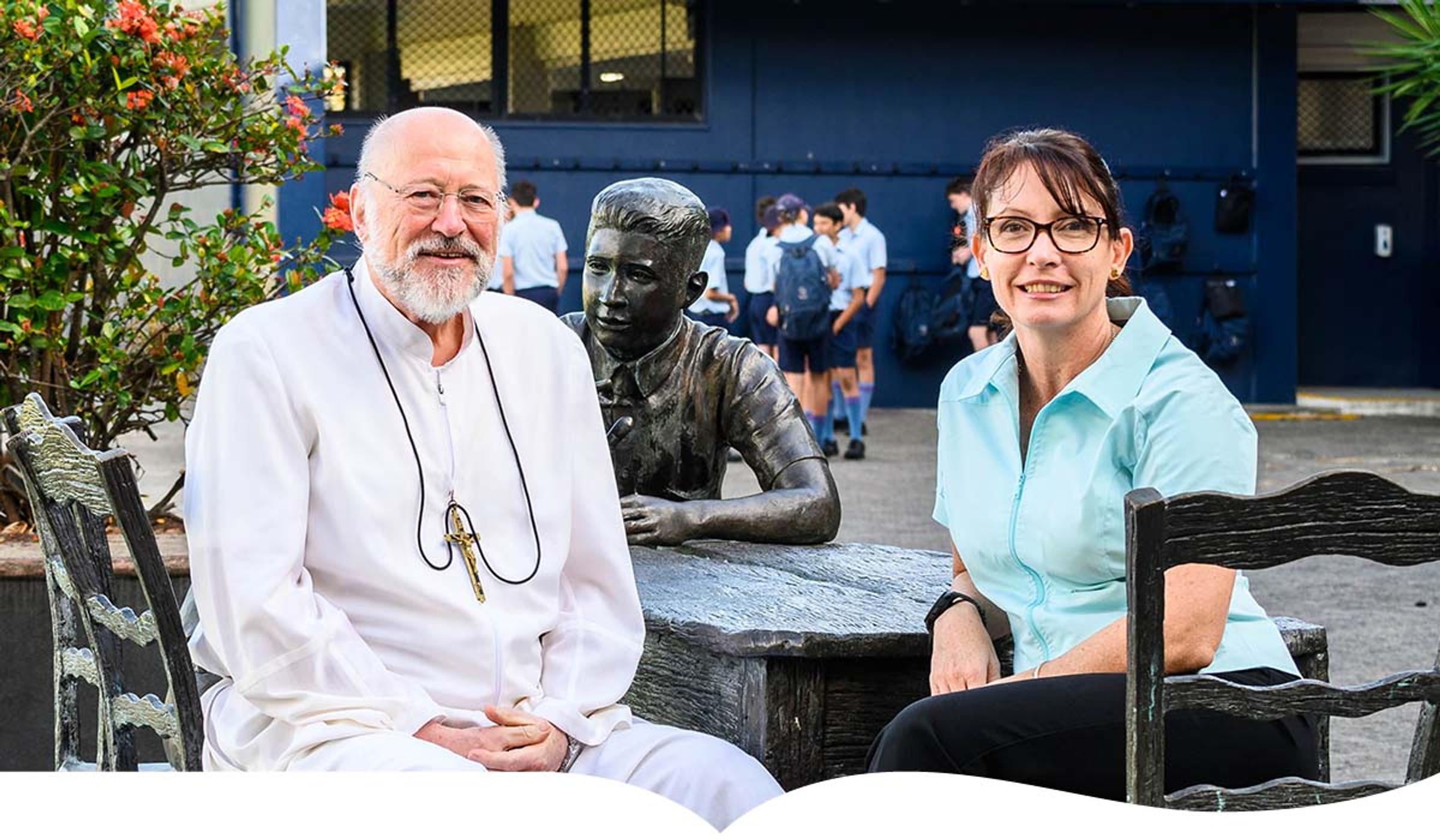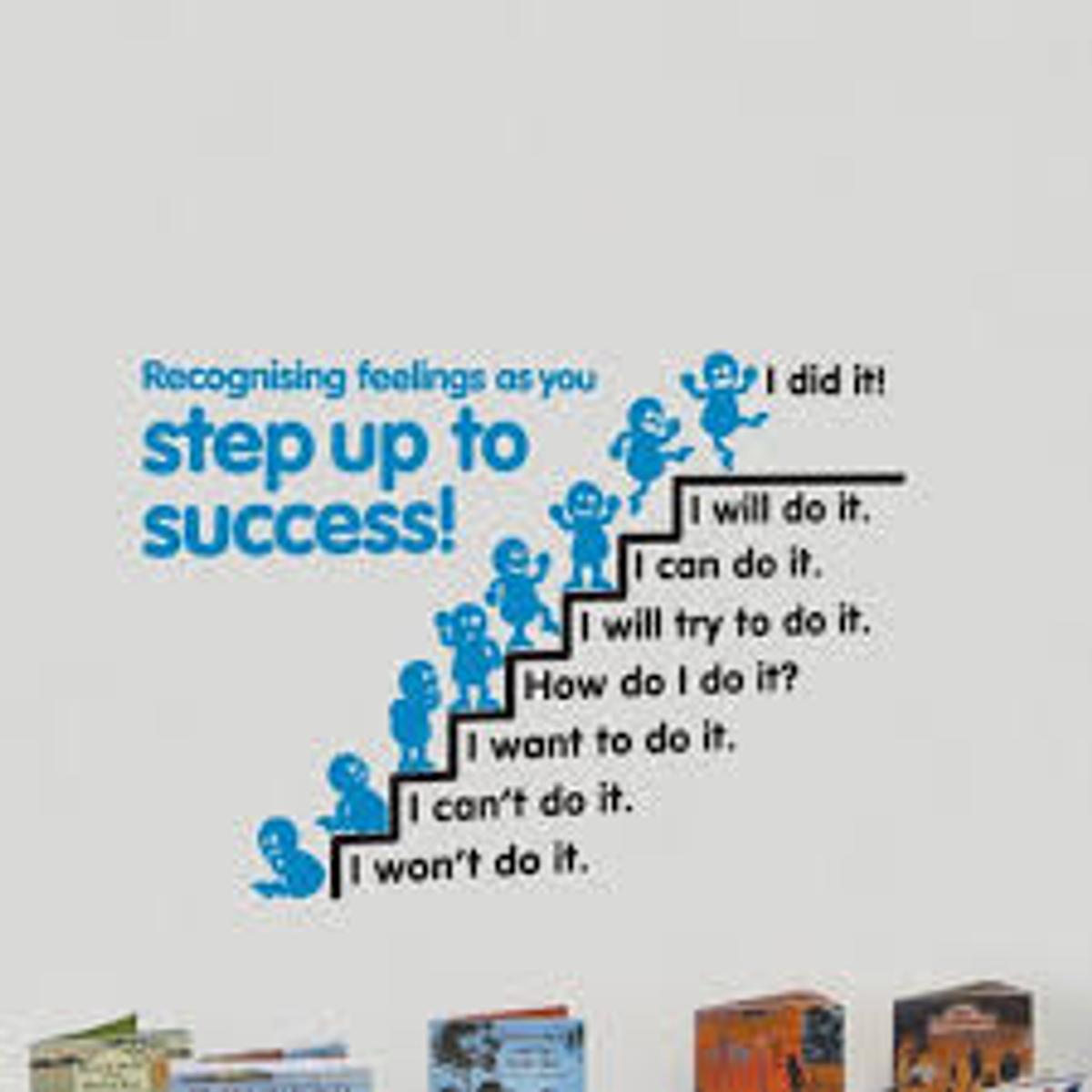COUNSELLING CONNECTIONS
News from College Counsellors Br Roger Vallance FMS &
Mrs Marijke Keller

COUNSELLING CONNECTIONS
News from College Counsellors Br Roger Vallance FMS &
Mrs Marijke Keller
Failure is Not the Opposite of Success. It is a Stepping Stone to Success
We all have bad days, when nothing seems to go right. We all also have times when we fail to achieve something that we really wanted and find it hard to cope.


However, some people seem much more able to pick themselves up and dust themselves down after these experiences than others.
These people are not intrinsically "better" in any way: they have simply developed some positive habits and skills that help them to bounce back from failure and turn it into a more positive experience. In fact, they use failure to learn and improve.
“If you can meet with triumph and disaster, and treat those two impostors just the same…” Rudyard Kipling, If.
Understanding how Failure Leads to Success
How do we pick ourselves up and move on after failing? How do we maintain focus on our goal of passing our external exams/winning the game/achieving that elusive PB?
1. Recognise and accept your emotions.
Failure hurts, and you need to accept that. Trying to minimise your feelings or distract yourself can be counter-productive in the longer term. Just recognise your feelings for what they are and allow yourself time to hurt a bit. Don’t, however, dwell on it for too long. That, too, is counter-productive, especially if you blame yourself. Take a few days for the pain to lessen, and then start to move on.
2. Don’t make it personal.
One reason why some people find failure devastating is that their identity is tied up in succeeding.
In other words, when they fail, they see themselves as a failure, rather than perceiving that they have experienced a setback. Try not to see failure or success as personal: instead, view it is something that you experience. It does not change the real "you".
This comes back to Kipling’s point: success and failure are not intrinsic parts of you. No part of your identity should be "I am a success" or "I am a failure".
3. Don’t worry what anyone else will think.
Sometimes our views about success and failure are tied up in what other people will think about us, or about how we think they will judge us.
You can never control what other people think. Nor should you ever do something simply because it will please other people.
It is easier to accept success and failure if you define them in your own terms, and do things because you want to achieve, not because you think other people will be pleased.


4. Take the right amount of responsibility.
We have all met people who are always ready to blame others or events for their lack of success.
It is important to recognise when other, external factors have affected your success. You don’t need—and should not try—to blame yourself for everything, particularly if it is outside your control.
It is, however, important to recognise what you yourself could have done to improve matters. For example, could you have trained or worked harder? Was your revision really all that it could have been? Did you really prepare for that interview in the best possible way?
Take responsibility for the factors over which you have control, and don’t be tempted to hide behind excuses.
5. Use failure to improve.
Don’t think of failure as failure. Instead, think of it as life’s way of showing you that you need to improve and how to do so.
In particular, ask yourself what you could have done differently to achieve a better result. Then consider how you could put that into practice to help you improve for next time.
Read more at: https://www.skillsyouneed.com/ps/dealing-with-failure.html
Motivation


Many of us speak about motivation, to our children and to ourselves, to improve performance or to keep on keeping on. Andrew Fuller is a well-known clinical psychologist, public speaker and author. He has two articles here which we recommend. The link to each article is embedded below.
The Importance of Sleep
With the busy end of Term 3 upon us, demands on your son's time and concentration are increasing. A real trap for young players is to think that extended study into the night will bring benefits. Actually, the science tells us that to learn well we need two consecutive nights of good sleep. The first night allows matters learned to be encoded into short-term memory, that is so those items can be recalled the next day. The following night of good sleep allows this learning to be encoded into long-term memory.
This weaving of learning into short- and long-term memory can overlap and roll over day to day so long as those consecutive nights of good sleep are gained. Good sleep for most adolescents is nine hours. And, if students and ourselves do not get the sleep we need, there are significant adverse effects as the graphic below shows.


.
How do I stop my mind racing and get some sleep? Many teenagers and some adults experience racing thoughts and intrusive thoughts that seem to be unmanageable. Click HERE for some excellent strategies to help you have a good night's sleep.
Br Roger brroger@cns.catholicedu.au 4052 9135
Mrs Marijke Keller mkeller@cns.catholic.edu.au 4052 9136